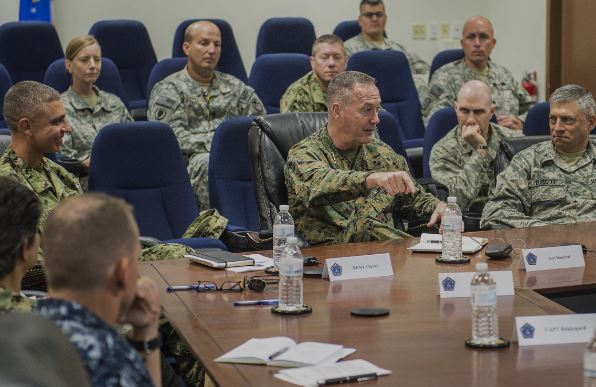“The United States cannot pursue a deal while the Tehran regime brutalizes its own people and provides Russia with arms to target civilians in Ukraine.”
By Andrew Bernard, Algemeiner
44 retired officers from the US Army, Navy, Air Force, and Marines published an open letter on Tuesday urging the United States to provide advanced weapons to Israel to deter and prevent a nuclear Iran.
The letter, organized by the Jewish Institute for National Security of America (JINSA) and published in the political publication The Hill, calls for the delivery to Israel of C-46A aerial refueling tankers, F-15I and F-35 multirole fighters, and precision-guided bombs.
“As retired American military leaders who devoted our lives to the defense of our nation, we prefer a diplomatic solution that would genuinely end the threat posed by Iran’s escalating nuclear program. But no such deal is imminent, nor realistic,” the letter said. “The United States cannot pursue a deal while the Tehran regime brutalizes its own people and provides Russia with arms to target civilians in Ukraine.”
In February the International Atomic Energy Agency (IAEA) detected uranium enriched to 84% at Iran’s Fordow Nuclear Power Plant. The IAEA has previously said there was “no credible civilian justification” for Iran’s enrichment levels. Uranium enriched to 3-5% is the level typically used for civilian nuclear reactors. 84% pure uranium is considered to be “highly enriched”, but remains short of the approximately 90% purity required for weapons grade uranium used in nuclear weapons. CIA director William Burns in February said that Iran could cross that threshold “within weeks” if it decided to, but did not assess that they had done so.
Led by Air Force General Chuck Wald (ret.) and Navy Vice Admiral John Bird (ret.), Tuesday’s letter said there was only one way to prevent Iran from taking that step.
“The only thing that can stop Iran from crossing the nuclear threshold is a credible military threat,” the letter said. “Only Israel offers that, since it alone demonstrates the will and effectiveness in containing and rolling back Iranian aggression and nuclear development.”
The Biden administration has repeatedly said that a return to the Joint Comprehensive Plan of Action (JCPOA) – the 2015 Iran nuclear deal – is “not on the agenda,” but have also refused to say that the talks are “dead.”
“The Iranian regime has not been true to its word when it said early on in this administration that it sought a mutual return to compliance with the JCPOA,” State Department Spokesman Ned Price said on 14 March. “It has consistently proven itself unable or unwilling to do so, and the JCPOA is no longer on the agenda. But what very much is on the agenda is working with our European allies, other allies and partners in the Middle East, and other parts in the world to do what we can to counter this program, to impose additional pressure on Iran in response to its intransigence and its continued advancements when it comes to its nuclear program.”


